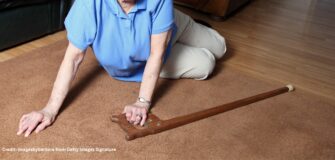The timeless benefits of engaging in recreational activities for older adults
Share
In the fast-paced world we live in, recreational activities often take a back seat to the demands of daily life.
However, for older adults, remaining active physically and socially in aged care is vital to maintaining health and well-being in later life. Research shows recreational activities that combine physical, cognitive and social elements may confer specific benefits as we age.
Physical Health: Regular physical activity is essential for older adults to maintain mobility, strength and overall health. The Australian Government recommends at least 30 minutes of moderate-intensity physical activity on most, preferably all, days for people aged 65 and over.
Engaging in leisure activities such as brisk walking, swimming, golf, aerobics, cycling, tennis, tai chi, yoga, gardening or mopping and vacuuming not only provides exercise but also promotes cardiovascular health and improves flexibility that is good for your heart, lungs and blood vessels.
This could also help maintain a healthy weight, reduce the risk of falls and injury, give you more energy and improve sleep among others.
However, for those who have health problems, you may ask your healthcare provider for an activity that suits you.
Mental Stimulation: Leisure activities offer valuable opportunities for mental stimulation and cognitive engagement. Activities like puzzles, board games, reading, and learning new skills stimulate the brain, enhance cognitive function, and may even help reduce the risk of cognitive decline and dementia in later life.
Social Connection: One of the most significant benefits of leisure activities for older adults is the opportunity for social interaction and connection. Participating in group activities like book clubs, art classes, or community events fosters meaningful social relationships, combats loneliness and isolation, and promotes a sense of belonging and purpose.
Emotional Well-being: Leisure pursuits provide avenues for relaxation, enjoyment, and self-expression, all of which contribute to emotional well-being. Whether it’s engaging in hobbies like painting, playing music or simply spending time with loved ones, it can reduce stress, alleviate symptoms of depression and anxiety and enhance overall quality of life.
Tips for incorporating leisure activities:
- Find activities that align with your interests and abilities.
- Schedule leisure time into your weekly routine and prioritise it as you would any other commitment.
- Explore local community centres, clubs and organisations for opportunities to participate in group activities.
- Embrace new experiences and be open to trying different recreational pursuits.
- Remember that leisure is not just about productivity; it’s about enjoying the moment and nurturing your well-being.
As older adults navigate the challenges and joys of ageing, incorporating recreational activities into their lives can be a powerful tool for promoting health, happiness and fulfilment. From physical health benefits to social connection and emotional well-being, the rewards of leisure are timeless.
Related: Elderly-friendly home: 5 ways to create a safe, accessible and comfortable living space
Ritchelle is a Content Producer for Healthcare Channel, Australia’s premier resource of information for healthcare.




